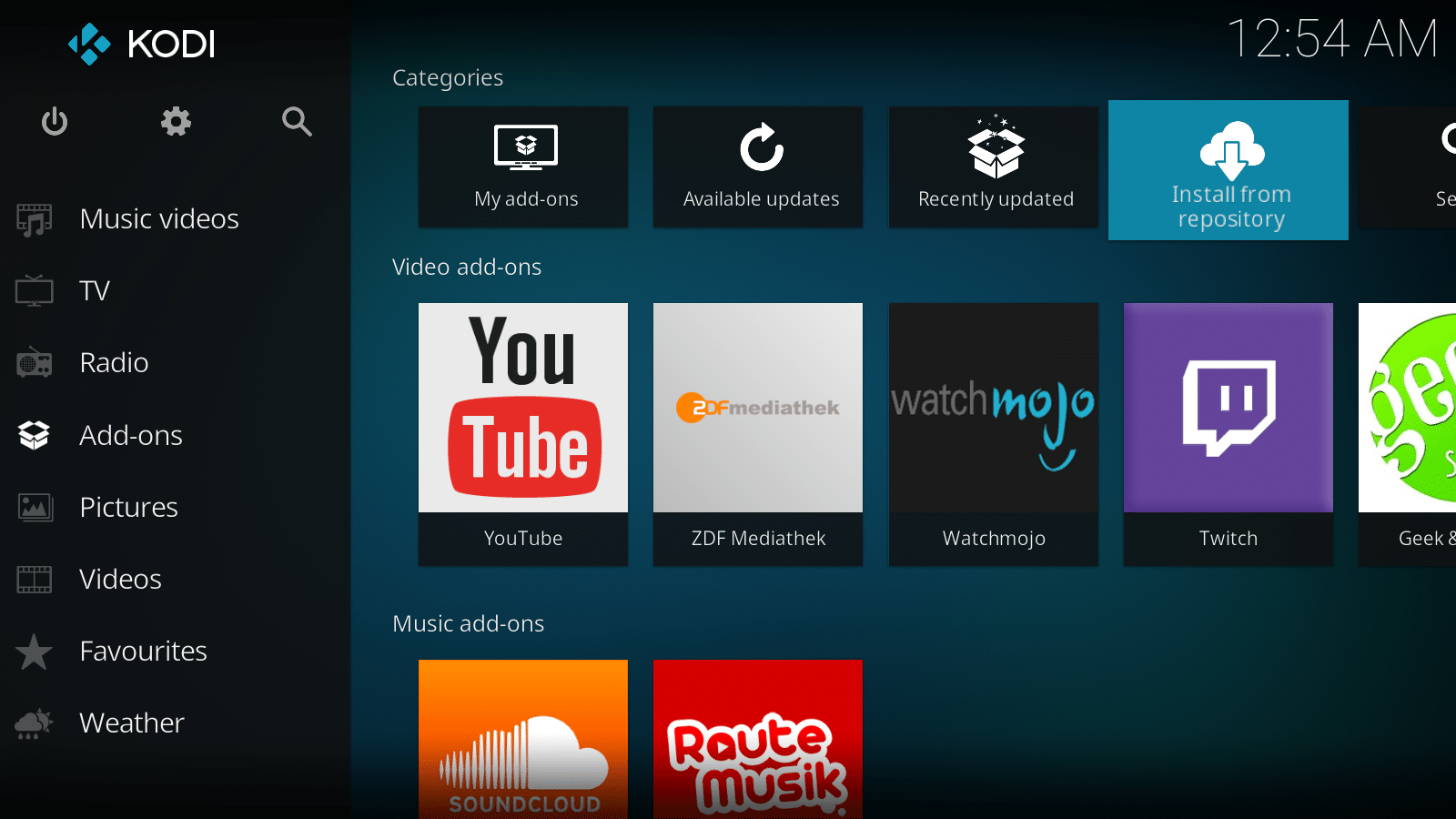Kodi is an app for Smart TVs, smartphones and computers which enables users to stream content from a huge variety of online services. In the past few years, it’s become hugely popular around the world, changing the way we consume movies, TV, music, and sport.
The app is an open source project developed by the XBMC Foundation (which stands for “XBox Media Centre”) and can be integrated into digital boxes or used as a standard app. When you’ve installed Kodi on Linux, Windows, Mac, iOS, Android, or even Raspberry Pi devices, it opens up a vast library of TV shows, movies, podcasts, music, and other digital content.
Basically, it’s an entertainment hub with unprecedented power and flexibility. And that’s the problem. Ever since it emerged, the app has been plagued by conflicts with rights holders, who want protect their intellectual property. But don’t let that put you off. Instead, read on to find out more about whether Kodi is legal, and the best ways to use the app safely.
IMAGE: KODI
A Quick Kodi Glossary For Newbies
When people first encounter streaming boxes and apps, the language used can be a little unfamiliar. So here’s a quick run down of some key terms.
- Add-ons – these are usually third-party apps designed to run on the streaming platform. These add-ons range widely, from official BBC or NBC apps to streaming options like SportsMani
- Repositories – Repositories are like app stores for Kodi. When you download an add-on, it will probably come from a specific repository, and you can download add-ons in bulk to make setting up a streaming box easier. SuperRepo and Xunity are two good options to choose.
- Boxes – Boxes are devices that are optimized for streaming and provide a bridge between Smart TVs and the internet. You’ll probably need one if you intend to use the streaming app with your TV. Look for a “fully loaded” box for the easiest installations, as they come with everything you need to get started.
- Third-party – By “third party”, we mean anything created by developers who aren’t part of the core XBMG team. Any add-ons designed to facilitate piracy are third-party, as the Kodi team prohibit tools for illegal downloading in their central repository. However, you’re still free to download and use them.
Is Kodi Legal – Understanding Where Streamers Stand
The first thing to know about using this streaming app is that Kodi is definitely legal. There’s no doubt about this (at least not as of late 2018). While the app might provide a platform for illegal activity, doing so isn’t illegal in itself. And no court rulings have penalized people for downloading and using Kodi.
It’s what you do with the app that matters. For example, in the UK two men were sentenced to four and a half years in jail for supplying Kodi add-ons designed to access Premier League soccer.
2017 was a bad year for Kodi users in general. Court rulings in the European Union led to Android-based streaming boxes being taken out of circulation, Facebook stopped advertising streaming boxes, and major add-ons were forced to close.
2018 – Kodi Bounces Back?
In 2018, the crackdown slowed a little. However, by that stage, many add-ons had been eliminated, making it harder to stream movies and TV shows. But that didn’t dent the popularity of using Kodi to access online content. As the research company Sandvine reported, the app’s set-top boxes are becoming ever more popular in Canada and the USA.
At the same time, major corporations have embraced the rise of Kodi streaming. For instance, Sony Australia has encouraged its users to purchase Android boxes to stream content.
What’s happening here? Well, it looks like progressive corporations realize that streaming boxes are here to stay and want to find ways to capitalize. In the process, they are dividing add-ons into legitimate and illegitimate categories.
Sony doesn’t endorse all third-party add-ons for Kodi, only ones that are officially endorsed via the Kodi wiki. That list includes plenty of legal tools like “Apple iTunes Podcasts” or “Comedy Central” while avoiding add-ons known to stream copyrighted material. Users of those add-ons will still be highly vulnerable to prosecution.
This makes it essential to know which add-ons are deemed legal and which ones are officially banned (hint: there’s a list here). And, if you intend to shady streaming add-ons, it means taking steps to optimize your privacy.
How To Use Kodi Safely
Given the growing risk of prosecution for using third-party add-ons, it’s vital to learn how to use Kodi boxes safely.
This is where Virtual Private Networks (VPNs) come in handy. VPNs use high-end encryption to create end-to-end “tunnels” between your box and streaming services. They also anonymize user identities by assigning them random IP addresses and routing traffic through secure servers located across the world.
But there’s a catch. Not all VPNs are optimized for use with Kodi. Some are hostile towards P2P streaming, others are too close to law enforcement agencies for comfort, while some simply aren’t reliable when it comes to encryption and IP address leakage.
However, there are VPNs which deliver everything Kodi users need. Here is a list of the leading providers, and all of them should shield your streaming from prying eyes. That way, you can build up a massive streaming library and broaden your entertainment horizons without worrying about prosecution.
If you are interested in even more technology-related articles and information from us here at Bit Rebels then we have a lot to choose from.


COMMENTS